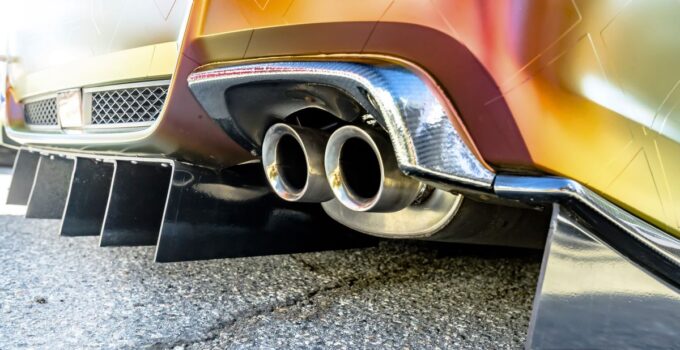Modifying your car’s exhaust system might sound like a cool way to boost performance or create that signature growl, but there are serious legal implications to consider. Before you make changes under the hood, here’s what you need to know about the legal consequences of modifying your car’s exhaust system.
1. Noise Ordinances

Image Credit: Shutterstock / Ody_Stocker
Many states and cities have strict noise ordinances that regulate how loud a vehicle can be. Modifying your exhaust to increase noise can put you in violation of these laws, leading to fines. For example, in California, the law limits vehicle noise to 95 decibels, and exceeding this limit can result in a ticket.
2. Emissions Compliance
Image Credit: Shutterstock / NONGASIMO
Federal and state emissions standards regulate what comes out of your exhaust system. If your modifications increase emissions, you could fail an emissions test, making it illegal to drive your car until it’s fixed. In states like California, with stringent emissions laws, illegal modifications can result in expensive repairs and fines.
3. Federal Environmental Laws

Image Credit: Shutterstock / Tada Images
The Environmental Protection Agency (EPA) enforces laws related to vehicle emissions. Modifying or removing components like catalytic converters, which reduce harmful emissions, is illegal under the Clean Air Act. Violating federal environmental laws can lead to fines of up to $10,000 for tampering with emissions control systems.
4. State Inspections

Image Credit: Shutterstock / ymgerman
Many states require regular vehicle inspections that check for compliance with safety and emissions standards. Modified exhaust systems that don’t meet state regulations can result in failed inspections, preventing you from legally registering or driving your vehicle. In states like New York, failing an inspection due to an illegal exhaust modification can leave your car off the road until you correct the issue.
5. Risk of Insurance Denial

Image Credit: Shutterstock / G_stocker
If your modified exhaust system causes an accident or contributes to a failure, your insurance company may deny your claim. Some insurance policies specifically exclude coverage for damages related to illegal or unapproved vehicle modifications. This could leave you financially responsible for costly repairs or medical bills.
6. Local Law Enforcement Scrutiny

Image Credit: Shutterstock / Nomad_Soul
A loud or visibly modified exhaust system can draw unwanted attention from law enforcement. Police in many areas actively ticket drivers for noise violations or visible illegal modifications. Repeated infractions can lead to more severe penalties, including court appearances and increased fines.
7. Vehicle Warranty Voiding

Image Credit: Shutterstock / BhFoton
Modifying your exhaust system can void your vehicle’s warranty, especially if the modification causes engine damage or other issues. Manufacturers often include clauses that void the warranty if aftermarket parts are installed, leaving you responsible for any repairs.
8. Sale and Resale Issues

Image Credit: Shutterstock / Kmpzzz
If you plan to sell your car, an illegal exhaust modification can reduce its value or limit your potential buyers. Prospective buyers might be wary of purchasing a vehicle that doesn’t comply with local laws, and you may need to restore the exhaust to its original condition to make a sale.
9. Impacts on Fuel Efficiency

Image Credit: Shutterstock / logoboom
Although modifying your exhaust can boost performance, it can also negatively affect fuel efficiency. This could lead to higher operating costs and, in states with strict fuel efficiency standards, potential legal issues if your vehicle no longer meets the minimum requirements.
10. Civil Liability for Noise Disturbances

Image Credit: Shutterstock / Virrage Images
In some areas, excessive vehicle noise can lead to civil complaints from neighbors or others affected by the noise. If your exhaust modification leads to noise disturbances, you could face civil lawsuits or orders to pay damages, adding a legal burden beyond traffic fines.
11. Increased Roadside Inspections
Featured Image Credit: Shutterstock / Standret
In areas where exhaust modifications are known to be common, law enforcement may increase roadside inspections. Modified exhaust systems can trigger these spot checks, leading to further scrutiny of your vehicle. If your car doesn’t meet legal standards, you could be cited on the spot, potentially facing impoundment if your vehicle is deemed unsafe or non-compliant.
12. Penalties for Catalytic Converter Removal

Image Credit: Shutterstock / Virrage Images
Removing or tampering with the catalytic converter is illegal in all 50 states due to its role in reducing harmful emissions. This is considered a serious offense under the Clean Air Act, with fines reaching up to $2,500 per violation in states like California. Federal penalties can be even harsher, making this modification a costly legal gamble.
13. Resale Certification Issues

Featured Image Credit: Shutterstock / VesnaArt
When selling your vehicle, some states require a certification that the vehicle meets emissions standards before the sale can be completed. Modifying your exhaust can make it difficult or impossible to obtain this certification. This could delay or derail the sale, and you might have to pay for repairs to bring the vehicle back into compliance before selling it.
14. Impact on Leasing Agreements

Image Credit: Shutterstock / Supavadee butradee
If you’re leasing a vehicle, modifying the exhaust system can violate your lease agreement. Many leasing contracts prohibit modifications, and altering the exhaust can lead to penalties when returning the vehicle. In some cases, you might be required to pay for restoring the vehicle to its original condition, or even face early termination fees.
15. Noise Pollution Citations

Image Credit: Shutterstock / Sean Pavone
In addition to traffic tickets, some jurisdictions issue specific citations for noise pollution, especially in densely populated areas. Cities like New York and Los Angeles have ordinances specifically targeting loud vehicles, and fines for violating these laws can reach hundreds of dollars per offense. Repeat offenders may face increased fines or even vehicle impoundment.
16. Difficulty Passing Smog Tests
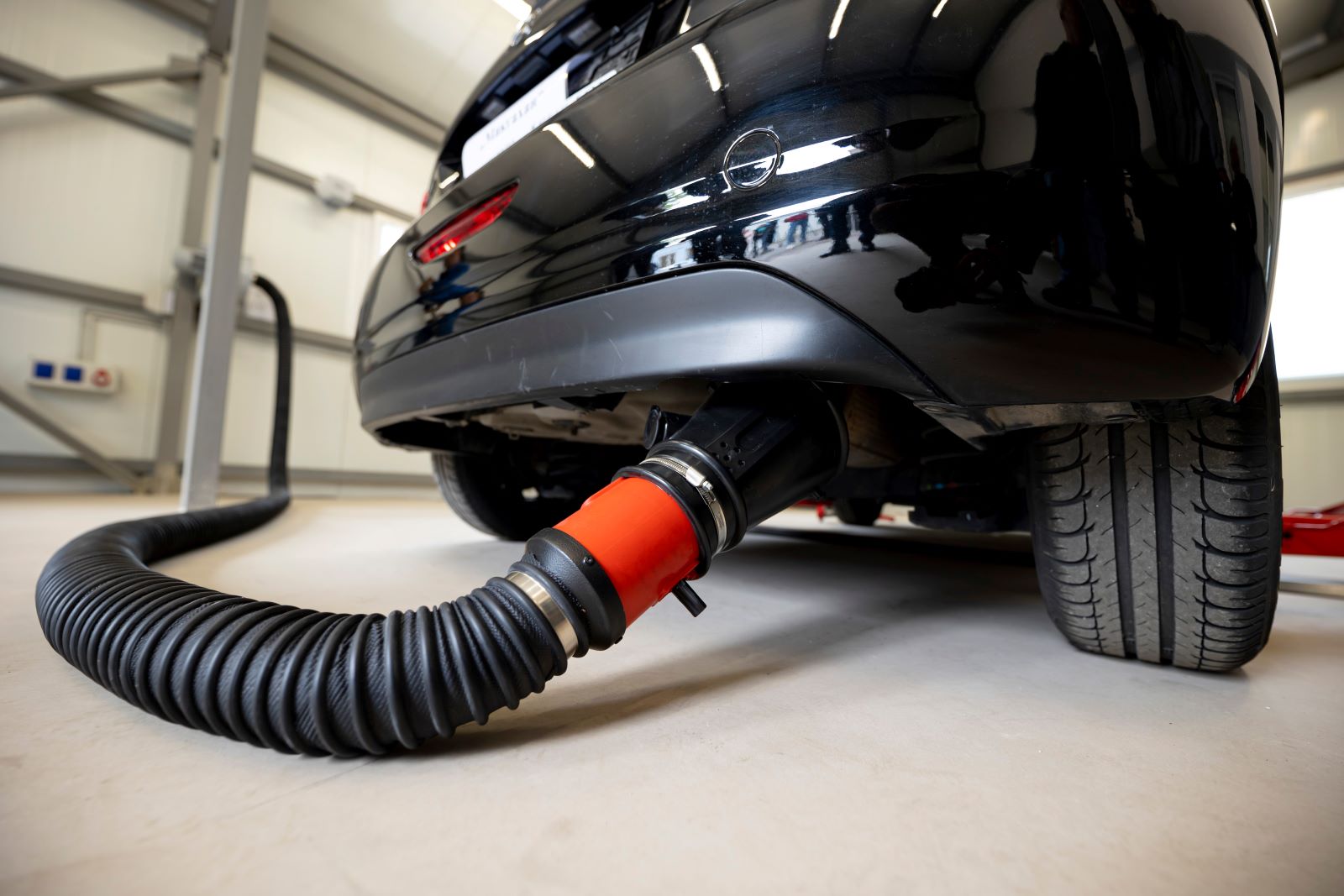
Image Credit: Shutterstock / Belish
In states with mandatory smog testing, a modified exhaust system can make it difficult to pass emissions checks. Failing a smog test can result in fines, additional inspection fees, or even a mandatory vehicle retrofit to meet environmental standards. This not only delays your ability to drive legally but can also become a significant financial burden.
Is It Worth It?
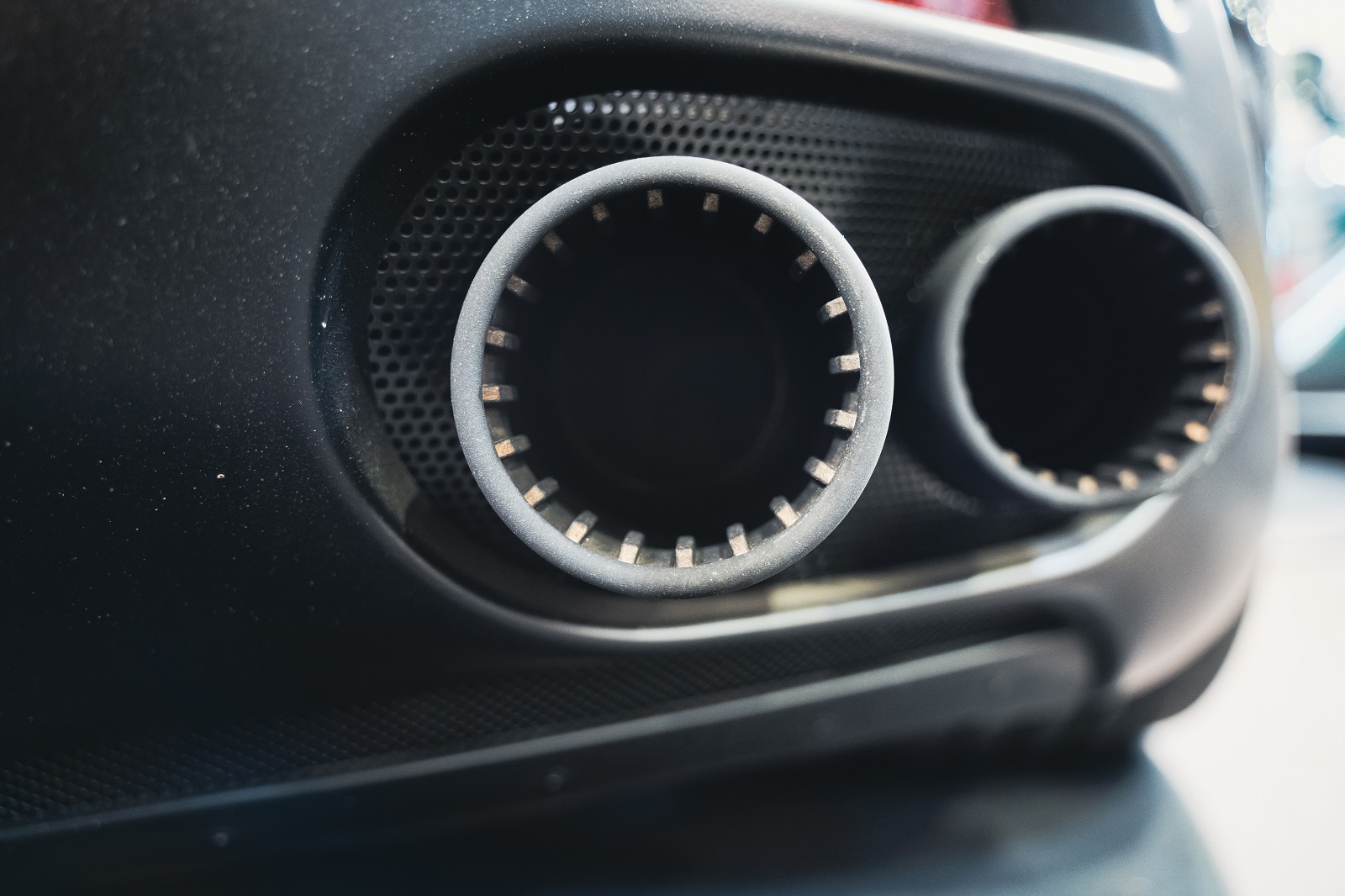
Image Credit: Shutterstock / macondo
While modifying your exhaust system can seem appealing for performance or aesthetic reasons, the legal risks are substantial. Are you prepared to handle the legal implications, or is sticking with the factory setup the smarter choice?
Police Magnet: 7 Cars That Guarantee You’ll Get Pulled Over

Image Credit: Shutterstock / sirtravelalot
Driving certain cars can make you more noticeable to law enforcement, even if you’re abiding by all the rules. Are you driving one of these “police magnets”? Here are seven cars that seem to attract more police attention than others. Police Magnet: 7 Cars That Guarantee You’ll Get Pulled Over
The Classic Cars That Were Total Clunkers

Image Credit: Pexels / Pixabay
Nostalgia has a funny way of making the past seem better than it was, especially when it comes to cars. But here’s the hard truth: some of those “classic” cars your dad raves about were real clunkers. Here’s a closer look at why some of those so-called “classics” weren’t all they were cracked up to be. The Classic Cars That Were Total Clunkers
The Worst U.S. Cars Ever Made: A Retro List
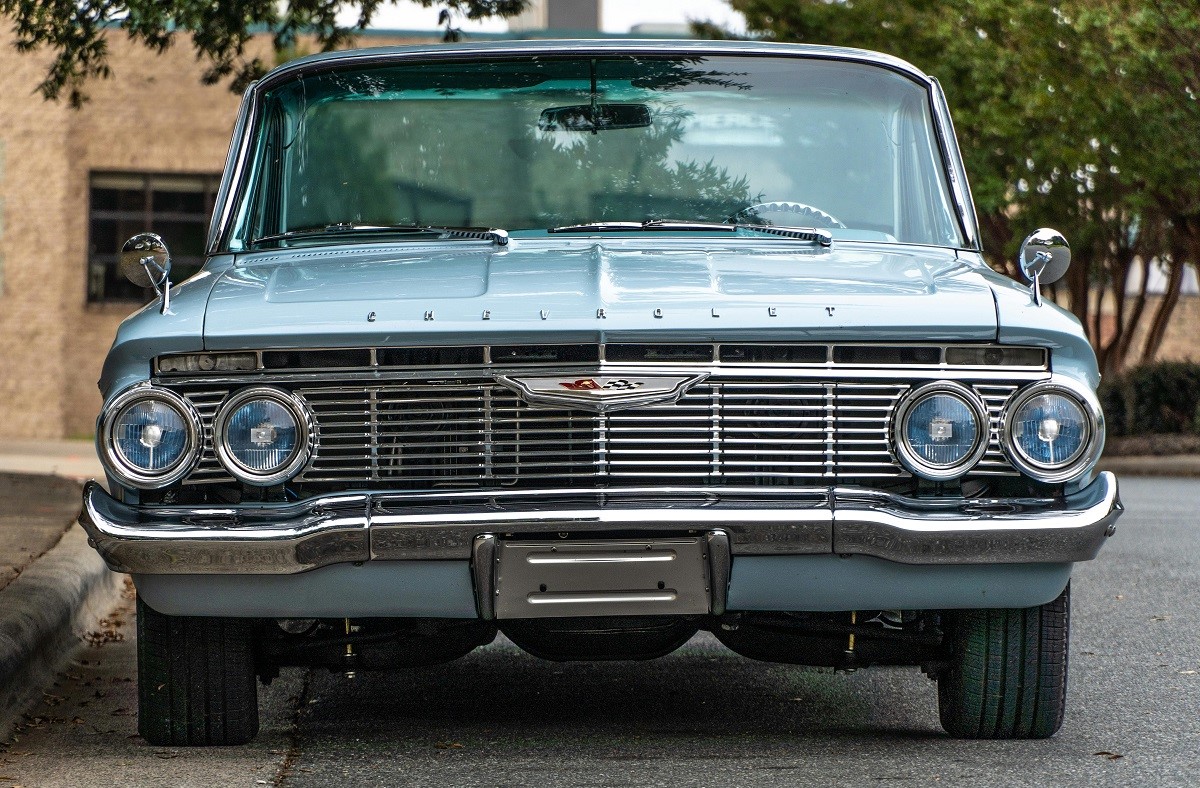
Image Credit: Pexels / Be The Observer
The U.S. auto industry has produced some incredible vehicles, but not every model was a hit. Here’s a look back at 16 of the worst cars ever made in the U.S., each infamous for its own unique flaws. The Worst U.S. Cars Ever Made: A Retro List
Featured Image Credit: Shutterstock / Jason Finn.
The content of this article is for informational purposes only and does not constitute or replace professional advice.
The images used are for illustrative purposes only and may not represent the actual people or places mentioned in the article.
For transparency, this content was partly developed with AI assistance and carefully curated by an experienced editor to be informative and ensure accuracy.
